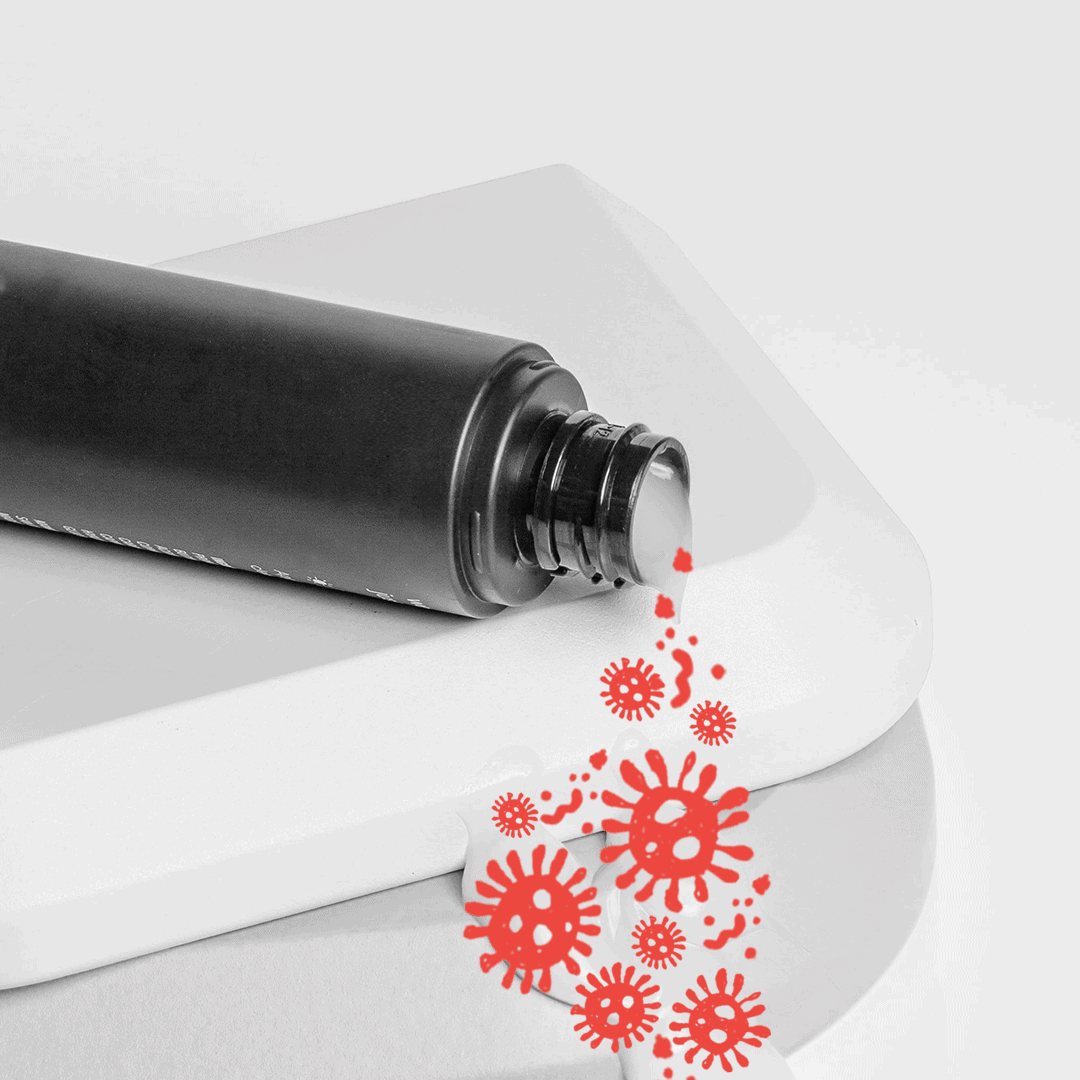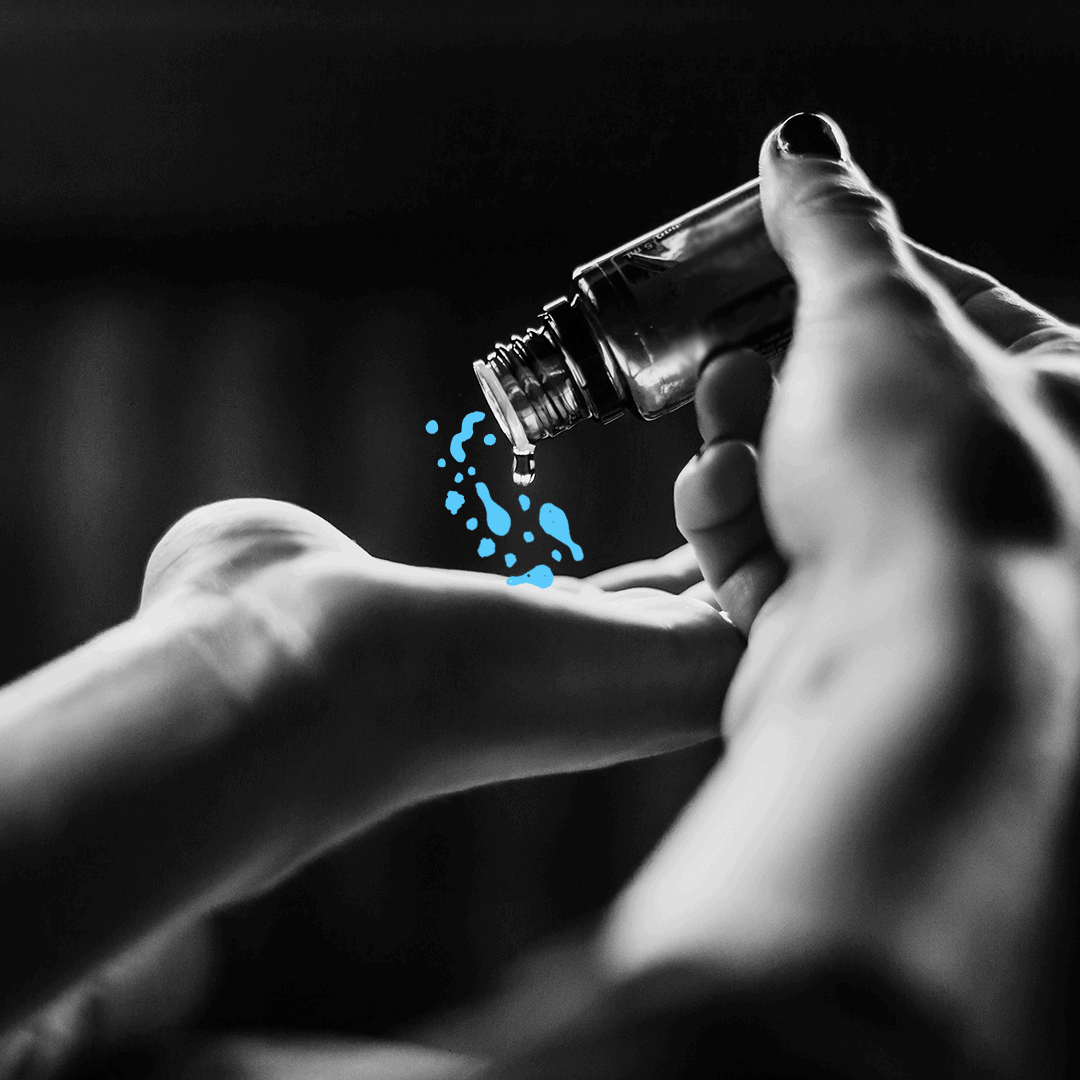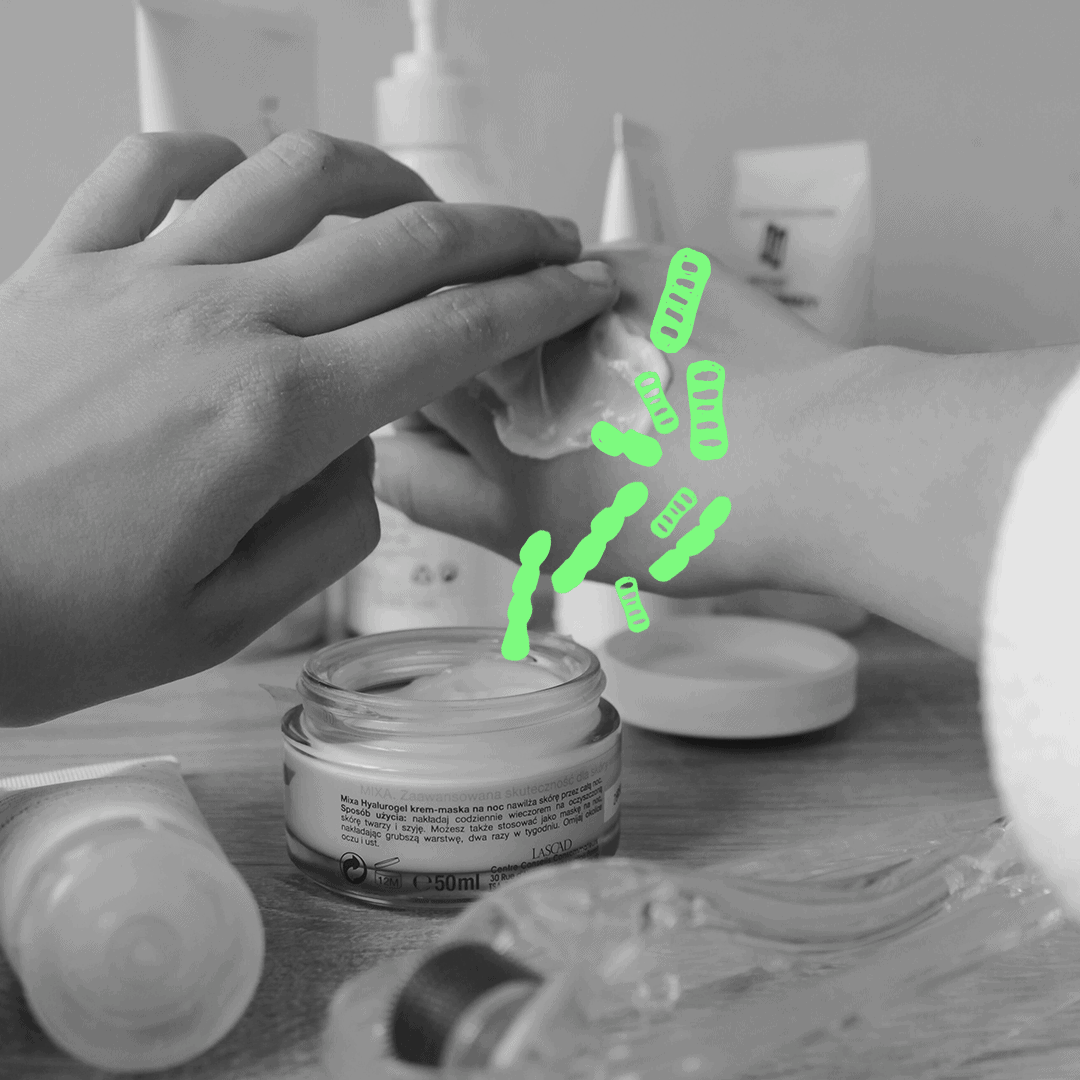As Beauty and Health Director at Grazia UK, Joely Walker has noticed an increase in interest around probiotic skincare. Here, she talks us through her interaction with the skin microbiome as one of the professionals at the frontline of the UK’s beauty industry, and highlights her favourite tried and tested products.
My Microbiome Journey
 My first introduction to the world of probiotics (live bacteria) – and, in turn, the term ‘microbiome’ – was around six years ago, via a souped up liquid, multi-strain probiotic supplement called Symprove.
My first introduction to the world of probiotics (live bacteria) – and, in turn, the term ‘microbiome’ – was around six years ago, via a souped up liquid, multi-strain probiotic supplement called Symprove.
After completing the recommended three-month course (to reset my gut microbiome) I was pretty blown over by the benefits, which ranged from boosted energy levels to better sleep and calmer, more content skin. Furthermore, having been recently diagnosed with rosacea at the time, I noticed a reduction in both skin redness and the frequency of flare ups.
Of course, the microbiome of the gut and the skin are not exactly the same and are separate but connected entities (read about the gut-skin relationship here). While there are environmental factors and bacteria common to both, the different sites mean that skin microbes are more susceptible to influence by the exterior environment, such as pollution (hello, London living).
Even so, my early experience of nurturing the gut microbiome through oral probiotics quickly spiked my interest in probiotic skincare – something that I’d just noticed had started trending in my job as a beauty editor. After all, we’re told to ingest and topically apply as many antioxidants as possible – surely the same should go for the powerhouse we now knew to be probiotics?
Both niche and big-money brands are launching products with the skin’s microbiome in mind. And, far from a fleeting moment, it’s a trend that is only set to soar further.
Still #TrendingNow
 What started gaining serious traction around eight years ago, with the completion of the Human Microbiome Project and the launch of Aurelia skincare (more on that later), has now made it to the mainstream. Both niche and big-money brands are launching products with the skin’s microbiome in mind. And, far from a fleeting moment, it’s a trend that is only set to soar further. Google searches in the past 12 months have increased by an impressive 52% in the UK alone (found using Keyword Tool), with a mammoth 427% long-term increase noted by FeelUnique on a February Instagram post.
What started gaining serious traction around eight years ago, with the completion of the Human Microbiome Project and the launch of Aurelia skincare (more on that later), has now made it to the mainstream. Both niche and big-money brands are launching products with the skin’s microbiome in mind. And, far from a fleeting moment, it’s a trend that is only set to soar further. Google searches in the past 12 months have increased by an impressive 52% in the UK alone (found using Keyword Tool), with a mammoth 427% long-term increase noted by FeelUnique on a February Instagram post.
The main question asked by Googlers? ‘What is probiotic skincare?’ and ‘Does probiotic skincare work?’. This proves that people’s interest is piqued, but there’s still some work to be done on the education front.
Brands Making Microbiome Waves

Many brands are producing probiotic-led skincare that aims to help balance the skin’s microbiome by preserving and nurturing the skin’s commensal (healthy) bacteria. Likewise, many products contain prebiotic and postbiotic ingredients which fit the same purpose in helping maintain the skin microbiome’s stability.
And this is the key – BALANCE, which is something I always strive for with my skin and personal skincare routine. Sending your skin’s microbiome balance off-kilter (say, via too many aggressive actives or over-cleansing) can cause issues, like breakouts, and has even been shown to affect visible skin ageing. On the flip side, keeping skin well-balanced with commensal bacteria can mean a happier, all-round healthier complexion that’s more resilient to environmental aggressors, like pollution.
That said, not all products are made equal, and some offer more clout than others when it comes to keeping your microbiome in check. Here are some of my tried and tested favourites, that I’ve found to be suitable for my sensitive, rosacea-prone skin. Of course, all sensitive skin is different and has different tolerance levels and triggers. (Note, the terminology used below is that used by each brand – for full definitions of pre, pro and postbiotics please see here.)
- Aurelia The Probiotic Concentrate
The OGs in probiotic skincare, Aurelia is one of my go-to skincare brands and this silky, lightweight serum is a godsend for calming inflammation flare ups, boosting hydration and setting my skin back on track.
Using ‘Aurelia’s pioneering ingredients in their purest form, it works by ‘boosting the skin’s natural repair process’. This basically means it gives skin a helping hand in the right direction with the highest probiotic dose they offer. - Allies of Skin Molecular Saviour Probiotics Repair Mist and
- Beauty Pie Uber Youth Super Elixir Microbiome Mist
These are two of my favourite mists I’ve tried. So much more than a simple on-the-go refreshing water mist, they’re laden with good-stuff ingredients (probiotics and antioxidants) that will manifest in notable skin results. I use them post-cleansing in place of toner for a balancing, hydrating booster, before applying serum. - Gallinee The Face Vinegar and
- The Inkey List Multi Biotic
Another brand which puts the microbiome at the heart of their products is Gallinee. An affordable beauty brand, Gallinee was created by Paris-born, London-based pharmacist Marie Drago with the aim to supply skin with probiotics as well as caring for the bacteria that’s already residing there.
The Face Vinegar, a product which contains ‘Actibiome’ (a prebiotic), is a hero of theirs – and is used in the toning step of your routine. Simply swipe it over your skin on a reusable cotton round and wait a few minutes before moving onto serum.
More affordable still, The Inkey List Multi Biotic pairs pre- and post-biotics to help balance the skin’s pH. Apply post-serum. - BIOSSANCE Squalane + Probiotic Gel Moisturizer
New brand on the block, BIOSSANCE, has a moisturiser with a gel-like texture that sinks into skin like a dream. It feels instantly refreshing, comforting and hydrating, while the active probiotic ingredient (lactococcus ferment lysate) is said to help with redness long-term, too. - Vichy Slow Age Fluid Moisturiser
I’m a big fan of Vichy’s products in general, and their Slow-Age range incorporates a probiotic-derived ingredient (Bifidus) as a way of naturally fending off visible signs of skin ageing. My favourite is the Slow Age Fluid Moisturiser. Lightweight and hydrating, it has a pump applicator that keeps the formula fresh.
Too Much, Too Soon?
Skincare users are savvier than ever before. The past few years has seen the rise of the ‘skintellectual’, with customers wanting to get into the nitty-gritty of what’s in their products and exactly how they work. We’re collectively clued up on formerly techy terms like hyaluronic acid, ferulic acid and vitamin A derivatives.
So, I personally wouldn’t say it’s ‘too much, too soon’ when it comes to probiotic skincare, at all. In fact, I see a movement happening right now that focuses on more of a back-to-basics approach aiming to achieving balance in the skin. Perhaps this follows a surge in products like retinols and at-home peels (brilliant products when used correctly but can be over-used). Here, probiotic skincare comes into its own, with room to shine further.
Getting Customers On Side: What Can Brands Do To Earn Trust?
So much of this, I believe, comes down to communication – particularly when it comes to transparency. People want to know the brand they’re dealing with from the offset – who are you, what are you offering and what do you strive for? We’ve all seen it in the surge of ‘consciously clean’ beauty, with customers resonating more with brands that align with their personal ethics.
Then comes the language – speaking to customers on a level, not overcomplicating things when it’s unnecessary to do so, and using social platforms to engage in conversation and ask for honest feedback. People resonate with brands they can reach and engage with – particularly when it comes to new and emerging brands.
A note of caution. While the term ‘microbiome’ is being used increasingly within the marketing of products, these are not always with rigorous testing or industry benchmarks in place. While this can be confusing when looking for the most microbiome-friendly products to use, don’t be deterred. We, as customers, are savvier than ever before and are quick to sort a dud from a do-gooder. Plus, with online and social media offering access to real reviews and recommendations, the products that truly work are the ones that will cut through the noise long-term.
Please note, all mentions of products above are the opinions of the author and are not affiliated with The Secret Life of Skin.
Browse the Content Hub and follow us on Instagram to keep up with our latest content!
